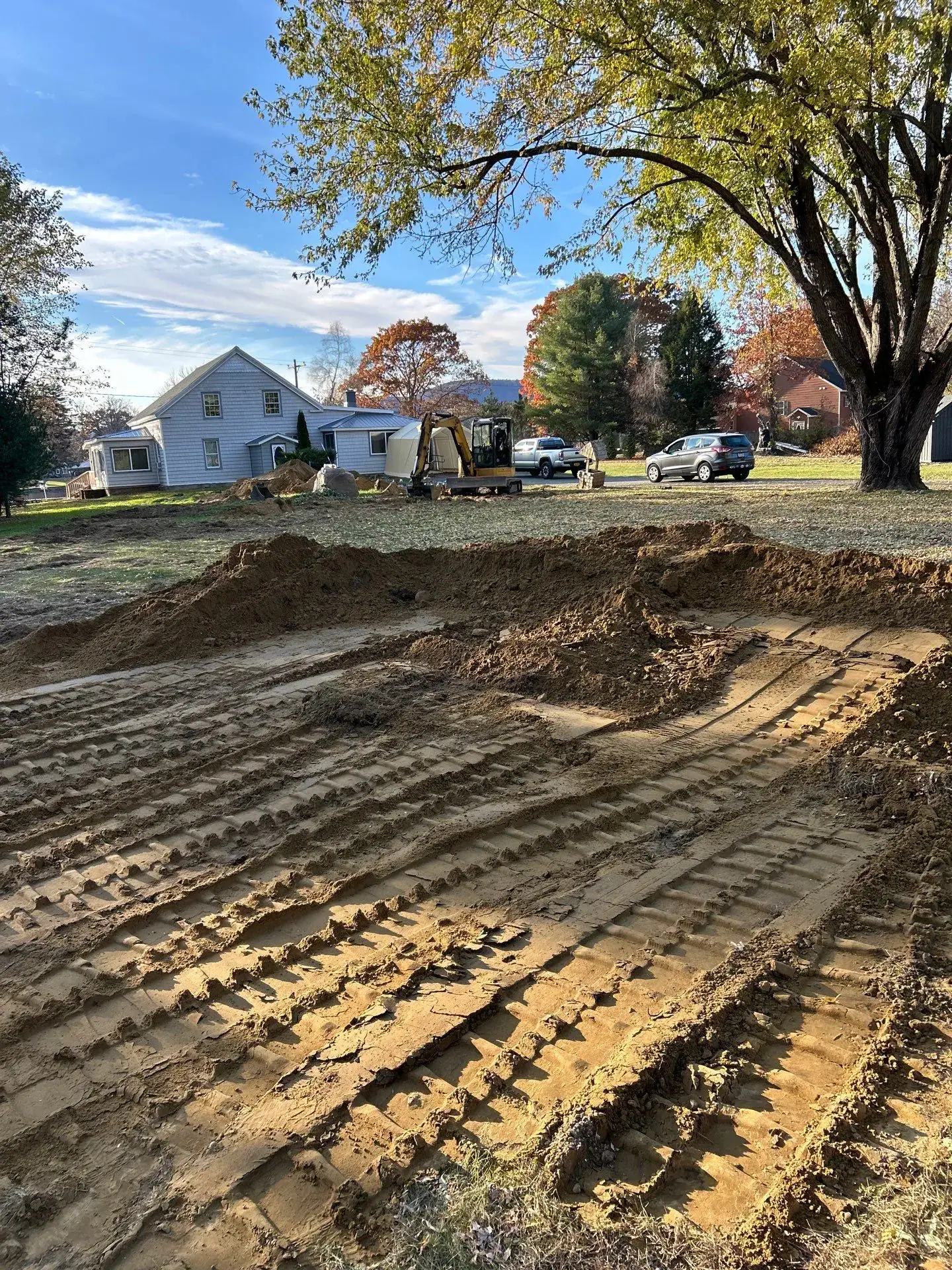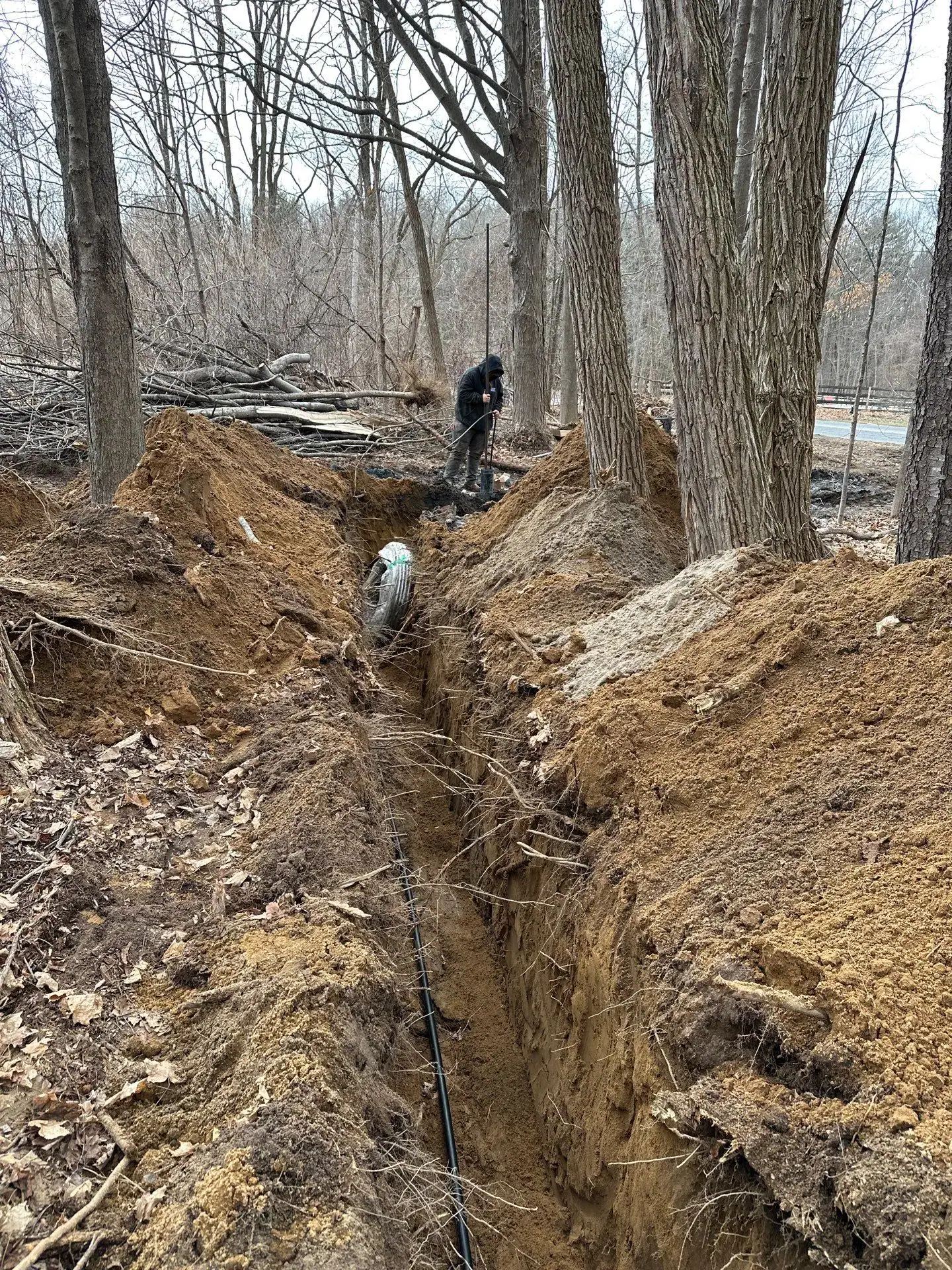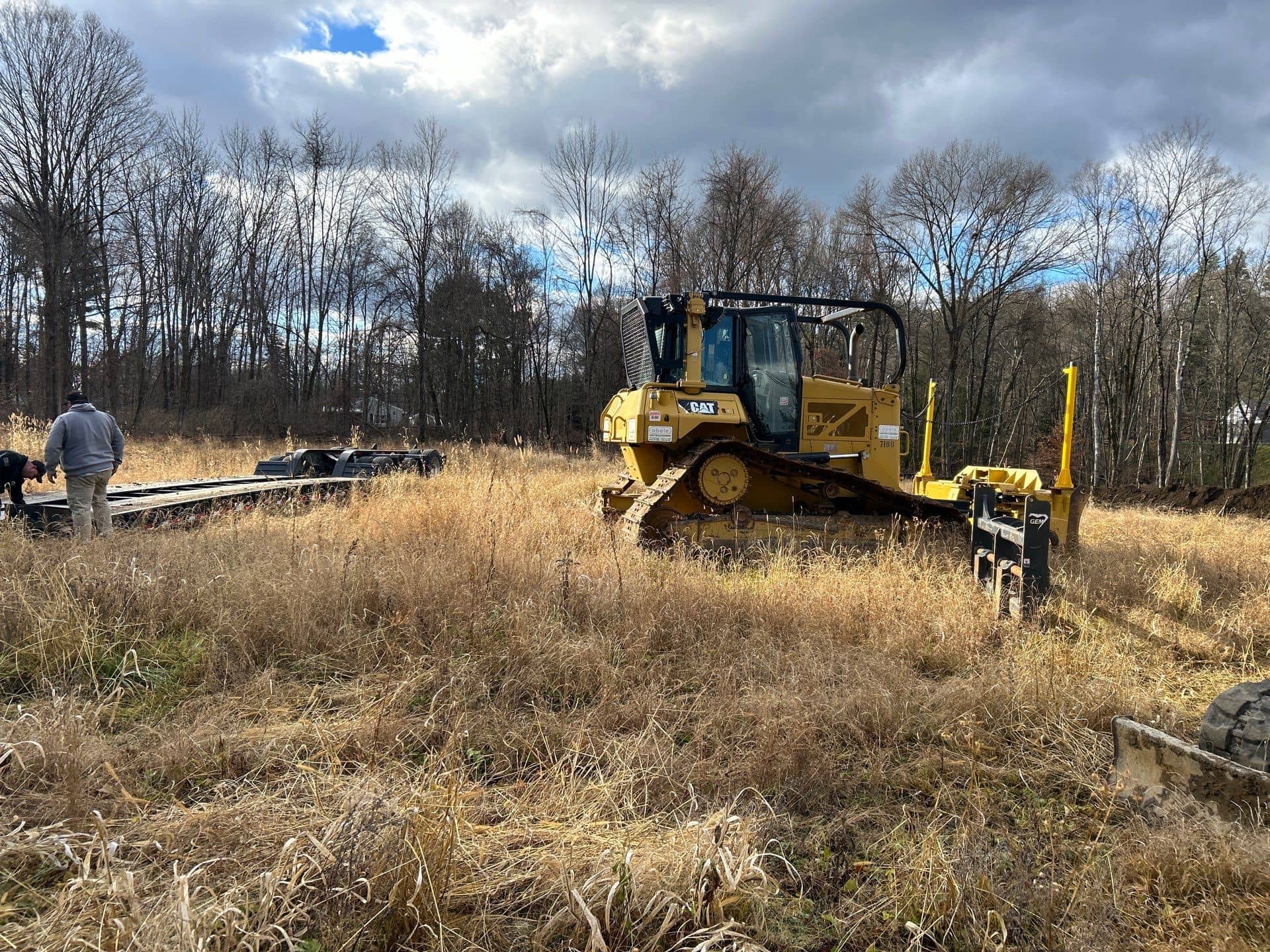Planning an excavation project? Get the real facts on costs, budgeting strategies, and what affects your bottom line.
Share:

Summary:
Excavation costs aren’t just about digging a hole. Most excavation projects in our area run between $2.50 to $15.00 per cubic yard, with total costs typically ranging from $1,100 to $5,600. But here’s what most people don’t realize—that’s just the starting point.
In New York, you’re looking at $240 to $420 per hour for residential excavation work. The final bill depends on factors most homeowners never consider. Your soil type, site accessibility, and project depth all play major roles in determining what you’ll actually pay.
The key is understanding that excavation costs are highly variable. What works for your neighbor’s project might not apply to yours, even if you’re just down the street.

Several factors can push your excavation costs well above the average range. Knowing these ahead of time helps you budget more accurately and avoid sticker shock.
Soil conditions make the biggest difference. Rock excavation costs $50 to $200 per cubic yard, and excavation costs can jump to $15,000 to $20,000+ if we hit rock when digging foundations or basements. In Saratoga County, rocky soil and ledge aren’t uncommon, especially in certain areas.
Site accessibility matters more than you think. If your property has narrow access roads or steep terrain, expect higher costs. Limited site access can significantly impact overall project costs, leading to delays, increased labor expenses, and the need for specialized machinery.
Project depth affects complexity exponentially. The depth of excavation directly influences overall cost, especially for projects requiring deeper foundations or basements, with deeper excavations becoming more complex from an engineering perspective. Basement excavation for new construction typically runs $1,500 to $6,000, but you could spend as much as $10,000 for a large basement.
Unexpected discoveries can derail budgets. Underground utilities, old foundations, or contaminated soil can add thousands to your project. Unforeseen challenges such as rock formations, groundwater issues, or contaminated soil can significantly impact project timelines and budgets.
The excavation estimate you receive rarely tells the whole story. Here are the additional costs that catch most property owners off guard.
Permits and regulatory fees aren’t always included in base estimates. Most cities require permits for earthmoving projects, and you’ll need to call 811 to schedule utility line marking. These costs vary by municipality, but they’re mandatory.
Soil disposal and material hauling can add significant expenses. Moving dirt costs $140 to $230 per cubic yard or $1,400 to $2,300 per dump-truck load on average. If your excavated soil can’t be reused on-site, you’ll pay for both removal and disposal.
Site preparation work often gets overlooked. Before excavation begins, sites must be cleared, with tree and debris removal costing between $1,400 and $5,800. This includes removing vegetation, old structures, and obstacles that prevent equipment access.
Grading and compaction are essential but sometimes treated as add-ons. Grading costs average $500 to $1,000 for small yards but can run $1,000 to $5,000 for home lots or average backyards. Proper grading ensures drainage and prevents future foundation problems.
Weather delays and seasonal factors can extend project timelines. Frozen ground and icy conditions slow down digging and can stretch timelines, with crews requiring additional costs for winter work attachments. Planning projects during favorable weather conditions helps minimize these costs.
Want live answers?
Connect with a Emerson Excavating and Trucking expert for fast, friendly support.
Creating an accurate excavation budget requires more than multiplying cubic yards by a price per yard. You need to account for all the variables that affect your specific project.
To calculate excavation costs, measure your planned area’s length, width, and depth, then multiply to find total cubic yards of soil that need removal. But that’s just the foundation of your budget calculation.
Smart budgeting means planning for contingencies and understanding how your site conditions will affect costs. The goal is avoiding surprises that can derail your project timeline and budget.

Start with a thorough site assessment before getting estimates. Site assessment should include detailed analysis of soil type, groundwater conditions, and potential environmental concerns. This information helps contractors provide more accurate estimates.
Get multiple detailed estimates from licensed excavation contractors Ask several different companies to provide quotes, as this gives you the best chance of finding one that meets all your requirements. Make sure each estimate includes the same scope of work for accurate comparison.
Factor in all project phases. Excavation cost estimation should include volume of material removal, soil type, equipment required, labor costs, site accessibility, potential dewatering needs, and disposal of excavated materials. A comprehensive estimate covers every aspect of the work.
Plan for contingencies. Unforeseen expenses like plan changes, unexpected soil conditions, or weather delays can lead to cost overruns, so always allocate a portion of your budget for unexpected costs. Industry experts recommend adding 10-20% to your base estimate for contingencies.
Consider timing and scheduling. Booking during off-season when contractors are less busy can help you get better rates, and trimming dig depth or footprint saves money if you don’t truly need the extra space.
Your contractor choice directly impacts both your project costs and results. The cheapest bid isn’t always the best value, especially when excavation mistakes can cost thousands to fix later.
Verify licensing and insurance coverage. Make sure contractors are properly licensed and insured, as most states require licensing for legal operation, and reputable contractors carry both general liability and workers compensation insurance. This protects you from liability if accidents occur.
Evaluate experience and specialization. Consider contractors’ experience level and specialty areas, as different contractors specialize in different types of jobs, so find one with experience in your specific project type. Contractors with many years of experience have deep understanding of excavation challenges and how to overcome them, so review their past projects to ensure relevant experience.
Assess equipment and capabilities. Modern excavation requires the right equipment and technology for efficiency and accuracy, so ensure contractors have access to well-maintained, modern equipment suitable for your project requirements. Professional excavation companies invest in high-quality, specialized equipment essential for tasks like trenching, grading, and site preparation, and having the right tools makes a big difference in work quality and speed.
Check references and reputation. Always check industry reputation when searching for excavation contractors, as trusted businesses should have strong local ties and many testimonials and reviews, and if possible, locate recent customers to inquire about satisfaction levels.
Understand contract terms and pricing. Beware of companies that bid at abnormally low prices, as if the price seems too good to be true, something fishy is probably going on. Price is important, but the cheapest option isn’t always best, so request quotes from multiple contractors and compare pricing, services, and materials, with detailed quotes including all costs like labor, materials, tools, and potential extras.
Successful excavation budgeting comes down to thorough planning, realistic expectations, and choosing the right contractor for your project. Site preparation costs can vary widely depending on project size, location, and complexity, but working with an experienced contractor who provides detailed cost estimates and identifies potential cost-saving measures helps ensure your project stays within budget.
The key is understanding that excavation is an investment in your project’s foundation—literally and figuratively. Cutting corners here often leads to bigger problems and higher costs later. When you’re ready to move forward with your excavation project, we at Emerson Excavating and Trucking bring the local expertise and professional approach you need to get the job done right the first time.
Remember that every excavation project is unique, and the best budget is one based on thorough site assessment and realistic planning. Take time to understand your costs upfront, and you’ll avoid the surprises that derail so many construction projects.
Article details:
Share:
Continue learning: